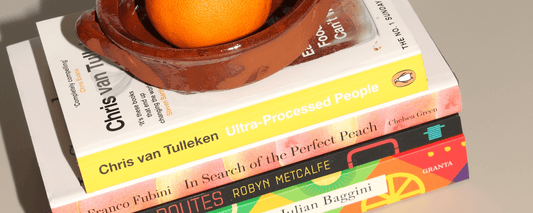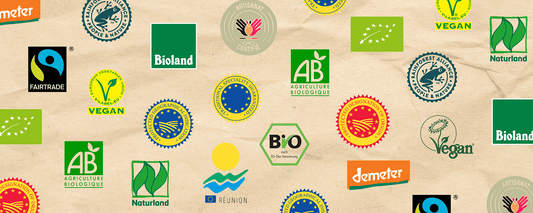Simply Explained: Meaning, Origins, and Real Examples of Artisan Food
When people hear the term "artisan food," they often assume it’s just a fancy label for pricey products with pretty packaging. But it’s much more than that. Artisan food isn’t about luxury for its own sake or just another marketing buzzword—it’s about quality, craftsmanship, responsible production, and a deeper connection to food origins. It reflects expertise, passion, and tradition, offering food made with care, not mass-produced in factories. It also stands for food autonomy, pushing back against the standardized choices dictated by big food corporations.
So, what truly defines artisan food, and what sets it apart from industrial products? Let’s explore its meaning, history, and why it’s more than just what’s on your plate—it’s a way of life.
What Does Artisan Food Really Mean?
There’s no official definition, but the word “artisan” comes from the Latin ars, meaning “skill” or “craft”. In fact, the word artisan was borrowed from the Middle French word artisan, which came from Italian artigiano, based on arte ("craft" or "art") and the suffix -igiano, meaning "belonging to." It refers to a person who works with a particular craft, emphasizing craftsmanship and expertise.
Originally used for skilled trades like weaving and carpentry, the term has since evolved to describe farm-to-fork type foods made using traditional methods, often by hand and with a focus on quality over quantity. Artisan foods prioritize craftsmanship and natural ingredients over mass production.

The History of Artisan Food in Europe
Artisan food has deep roots in Europe. From ancient Rome to the Middle Ages, traditional techniques in baking, cheese-making, and winemaking have been passed down through generations. During medieval times, guilds played a key role in preserving these crafts, setting strict standards to ensure quality and authenticity. Interestingly, some of these guilds still exist today—such as France’s artisan producer guilds, which continue to protect and honor traditional food craftsmanship.
The Industrial Revolution brought mass production, threatening many artisanal traditions. But across Europe, regions held firm. France kept its rich cheese and bread-making heritage alive, Belgium perfected handcrafted chocolates and beer, and Germany maintained its diverse bread culture. In the late 20th century, a renewed appreciation for artisanal foods emerged, leading to movements that championed local culinary heritage. The Slow Food movement, for example, began in Italy in 1986 as a response to the opening of a fast-food restaurant near Rome’s Spanish Steps.
Today, the fight for good food continues. In contrast to the uniformity of global food systems and large-scale agriculture, Europe’s artisan food culture stands out more vividly than ever. Growing awareness about industrial food practices has fueled demand for authentic, responsibly made products. In Belgium, this cultural value is officially recognized: the government now grants legal status to artisans, emphasizing the importance of preserving these traditions.
How Artisan Food Differs from Mass-market, Industrial Products
So, what makes artisan food different from the mass-market products you typically find on supermarket shelves? It comes down to a few key things: ingredients, craftsmanship, and how it’s made.
1. Quality of Ingredients
Artisan producers focus on high-quality, fresh ingredients. They choose seasonal, local, and pure raw materials like fresh vegetables, herbs, nuts, and grains. Every ingredient matters and adds to the final taste.

2. Craftsmanship
Artisan food is made by people who’ve spent years perfecting their skills. Whether it’s baking bread or pressing olive oil, it’s about understanding each ingredient and knowing how to bring out its best. Unlike factory-made food, it’s mostly crafted by hand with real attention to detail.
3. Production Methods
Artisan food is made in small batches using traditional techniques. These methods take more time and care, but they create deeper, richer flavors. Processes like fermentation and aging can’t be rushed—and that’s part of what makes artisan food special.
4. Transparency and Origin
With artisan food, you know where it comes from, who made it, and how. Producers are proud to open their workshop doors because they have nothing to hide and are committed to keeping tradition alive. This level of transparency is rare in mass-market products.
5. Nutrition
Fresh, local ingredients and small-batch production often mean better nutrition. Artisan foods are usually free from artificial additives and colorants, and contain less sugar. They’re made with real, whole foods, which makes them healthier and more natural.

6. Sustainability
Many artisan producers work with local farmers or grow their own ingredients. They focus on responsible farming, reducing waste, and supporting the environment. Choosing artisan food often means supporting sustainable, regenerative agricultural practices.
7. Flavor
Perhaps the most obvious difference: flavor. Artisan food has bold, authentic flavors thanks to superior ingredients and time-honored methods. Whether it’s aged cheese or freshly pressed olive oil, the taste reflects its terroir, variety, and the expertise of the maker.
Typical Examples of Artisan Foods
The world of artisan food is rich in variety, with products made using time-honored techniques and local ingredients. Some of the most beloved examples include:
Jams and Preserves
Made with seasonal, locally sourced fruits and berries, artisan jams are often cooked slowly to retain the natural flavors and textures of the ingredients. Freshly ground spices and herbs are sometimes added, creating a unique, complex taste profile.
Cheese
From creamy soft varieties to aged, firm wheels, artisan cheeses are crafted using traditional methods, often with raw milk, all while respecting animal welfare. Whether made from cow, goat, or sheep’s milk, each cheese reflects the milk’s origin, the maker’s expertise, and the aging process.

Extra Virgin Olive Oil
Produced in small batches during the harvest season between October and November, artisan olive oil is made from hand-harvested olives that are cold-pressed within hours using only mechanical methods. Makers focus on native, single-variety olives from specific regions, creating rich, robust flavors that reflect the local terroir and climate.
Kombucha
This fermented tea has grown in popularity in recent years, with artisan kombucha makers focusing on small-batch production using organic tea leaves, sugar and in-house SCOBY kombucha starter culture. The fermentation process results in a tangy, fizzy drink that’s both refreshing and rich in probiotics.
Chocolate
Artisan chocolate starts with carefully selected, single-origin cocoa beans, often sourced directly from farmers the makers know personally. Like coffee or olive oil, great chocolate showcases the unique characteristics of its terroir and cacao variety, shining through in every bite.
Artisan Food as a Lifestyle
Choosing artisan food is more than an occasional indulgence—it’s a mindset. It means valuing quality over quantity, eating with the seasons, and supporting sustainable, small-scale production. In a world where mass-produced food is everywhere and often lacks nutritional value, artisan food offers a refreshing contrast. It also fosters a deeper connection to what we eat, reminding us of the origins of our food and the artisans who craft it.
Once found mainly at farmers’ markets and specialty shops, artisan foods are now more accessible than ever, thanks to online stores that source directly from skilled producers across Europe.

Discover Artisan Food at Gourmie Goods
At Gourmie Goods, we bring together the best artisan foods from independent makers and growers across Europe. Every product is carefully selected for its quality, craftsmanship, and authenticity. Whether you're looking for single-variety olive oil, organic preserves, or hand-harvested sea salt from ancient salt marshes, we make it easy to experience the flavors of Europe’s finest independent producers.
Eat well. Live well. Explore our selection today.

About author
Baiba Soika
Food writer and Co-founder of Gourmie Goods, Baiba is dedicated to putting good food at the center of modern living, believing food is the foundation of a successful life. With a background in international trade, design, and technology, she brings a unique, multifaceted approach to food industry. When not sourcing products or exploring new brands and trends, you'll find her somewhere near the sea, on the badminton court, doing sudoku, or in the kitchen, crafting simple yet flavorful dishes. Based in Düsseldorf, Germany.





